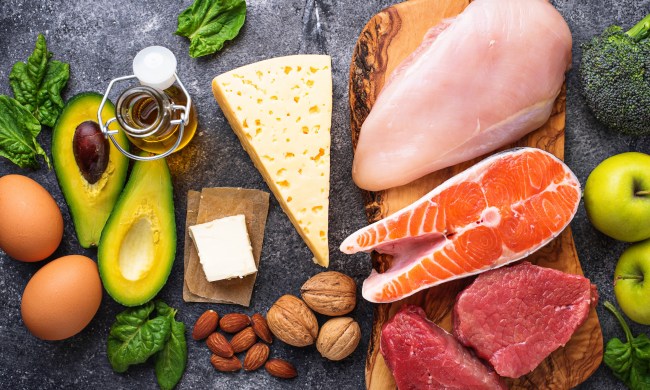
Have you ever found yourself trapped in the seemingly endless cycle of dieting, governed by strict rules and forbidden foods? If so, the concept of intuitive eating might just be a breath of fresh air your routine needs. This approach to eating is not just another diet fad; it’s a sustainable, health-focused lifestyle that has profound benefits for your well-being.
In a world dominated by diet culture, we are bombarded with messages that promote fad diets, quick fixes, and the relentless pursuit of weight loss. These societal pressures can often lead to disordered eating patterns, body dissatisfaction, and a negative relationship with food. Intuitive eating serves as a powerful antidote to this toxic environment, offering a way to break free from the cycle of restrictive eating habits and embrace a more sustainable approach to nutrition.

What is intuitive eating?
Intuitive eating is an empowering approach that teaches you to listen to your body’s natural hunger signals rather than external dieting rules. It’s a self-care eating framework that integrates instinct, emotion, and rational thought. This approach includes rejecting the diet mentality, honoring your hunger, making peace with food, and respecting your body, among others.
Intuitive eating encourages individuals to trust their body’s signals to guide them in making choices around food, allowing them to break free from the cycle of chronic dieting and return to a sense of balance with eating. The transformative power of intuitive eating can be profound, moving someone from a life of restrictive eating and guilt to one of freedom and self-respect.
Consider a high-powered executive who has cycled through numerous diets and experienced the weight gain that comes with dieting. By embracing intuitive eating, he can learn to recognize his body’s true needs, enjoy his meals without guilt, and ultimately make peace with food.
This shift not only can lead to a healthier relationship with food but also to improved overall well-being as he learns to cope with emotions without turning to food. This holistic change can lead to a more joyful and energetic life as he starts respecting his body’s needs rather than punishing it with unrealistic diet standards.

The benefits of intuitive eating
It’s important to note that intuitive eating isn’t about weight loss or adhering to external dietary guidelines. Rather, it emphasizes cultivating a positive relationship with food, honoring your body’s natural cues, and embracing a balanced and flexible eating style.
Become aware of your hunger and fullness cues
One of the essential benefits of intuitive eating is the reconnection with your body’s natural hunger and fullness signals. By learning to honor your hunger and respect when you’re full, you’re less likely to engage in the overeating that often comes from ignoring these cues. This approach can lead to a more balanced eating pattern and prevent the kind of yo-yo dieting that wreaks havoc on your metabolism.
Enhanced psychological well-being
Ditching the diet mentality can significantly improve your mental health. Studies have shown that intuitive eating promotes a healthier body image and reduces the stress associated with restrictive diets. By eating intuitively, you’re also likely to experience lower levels of depression and anxiety related to food and body image, fostering a more positive self-esteem and overall well-being.
Goodbye, food guilt
When you practice intuitive eating, you challenge the “food police” in your head—the internalized voice that labels foods as “good” or “bad” and makes you feel guilty for enjoying a slice of cake. This shift in perspective can alleviate the guilt and shame often associated with eating, which is not only liberating but also conducive to making more balanced food choices without emotional distress.
Find joy and satisfaction in eating
Intuitive eating encourages you to discover the satisfaction factor in your meals, allowing you to enjoy food for the pleasure it brings. This approach can transform your eating experiences, making them more enjoyable and satisfying, which paradoxically can help you to eat less because you’re savoring your food and feeling content with less.
Physical health benefits
While intuitive eating isn’t specifically designed as a weight loss strategy, it often results in a healthier body composition. Studies have shown that those who eat intuitively tend to have lower BMIs and a reduced risk of chronic conditions associated with weight, such as cardiovascular disease. Plus, by avoiding restrictive diets, you’re more likely to maintain a consistent weight over time, avoiding the health risks associated with weight cycling.
Intuitive eating is a lifestyle approach to nutrition that focuses on listening to your body’s natural hunger signals rather than following strict diets or rules. It promotes a positive relationship with food, honoring your body’s needs, and embracing a balanced and flexible eating style. By practicing intuitive eating, you can reconnect with your body’s hunger and fullness cues, improve your mental health and body image, let go of food guilt, find joy in eating, and experience potential physical health benefits.



